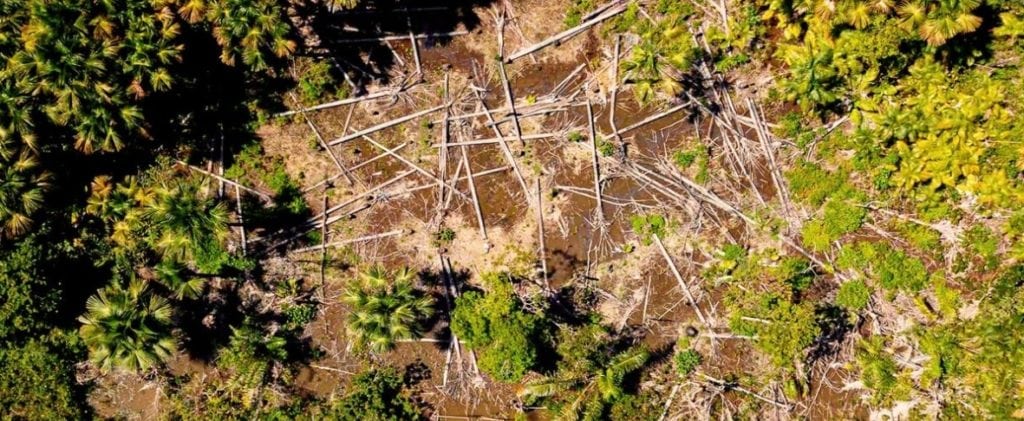
Melgaco, Para State, Brazil, on July 30, 2020. Credit: Tarso Sarraf/AFP/Getty
A new report from the World Wildlife Foundation (WWF) reveals that population sizes of “mammals, birds, amphibians, reptiles and fish” are down by 68 percent since 1970, amounting to an “unprecedented” rate of destruction of Earth’s diverse range of species.
“Biodiversity is fundamental to human life on Earth, and the evidence is unequivocal – it is being destroyed by us at a rate unprecedented in history,” the WWF explains in its report. The authors cite a number of reasons for the massive loss of wildlife including the industrial revolution, human population growth, increases in global trade and consumption, urbanisation and climate change. The WWF argues that humans are overusing the planet’s biocapacity by at least 56 percent, in the process polluting most of our oceans, destroying 85 percent of the area of wetlands and significantly altering 75 percent of the planet’s ice-free land surface.
“Too few of our economic and financial decision-makers know […]










I have been a member of the WWF for many years and have watched them explain one extinction after another. Is this the beginning of the end of the world??? And, are we the next to become extinct???